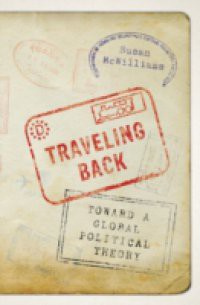We live in a global age, an age of vast scale and speed, an age of great technological and economic and environmental change, in conditions our ancestors could hardly have imagined. What does this compression of geographical and temporal scale mean for our political thinking? Do we need new modes of political thought or a new kind of political imagination? How might we begin to develop a truly global political theory? Against the common belief that we need a wholly new political theory for our global age, Susan McWilliams argues that the best foundation is already behind us and can be found by traveling back. In doing this -- revisiting the history of political thought with a mind to the questions accompanying globalization -- it becomes clear that the greatest tool for understanding our new world lies in one of the oldest themes in Western political theory: travel. Since the beginnings of Western political thought -- the ancient Greeks referred to travel as theoria -- political theorists have used images of travel to illuminate the central questions of globalization; where travel stories appear, we find serious reflection about how to live in cross-cultural and interconnected political conditions. Here we find attention to the contingency of political identity, to hybridity, and to the threats of colonialism and imperialism. We even find self-critical questioning about the dangers that face political theorists who want to think globally. In Traveling Back, McWilliams uncovers the rich travel-story tradition of political theorizing that speaks directly to the problems of our age. She explores why this travel-story tradition has been so long neglected, especially in this time when we need its wisdom, and she calls for its rediscovery. In order to move forward toward a global political theory, as McWilliams eloquently demonstrates, we must first learn to travel back.

